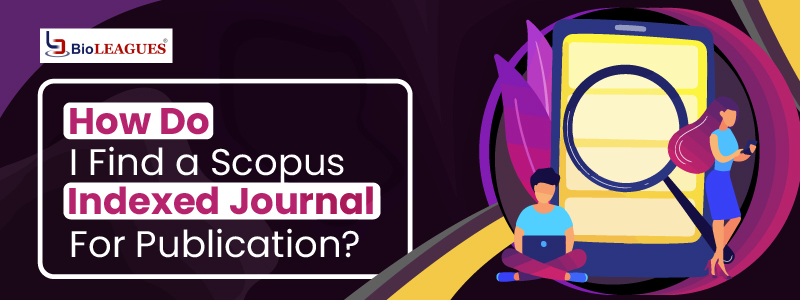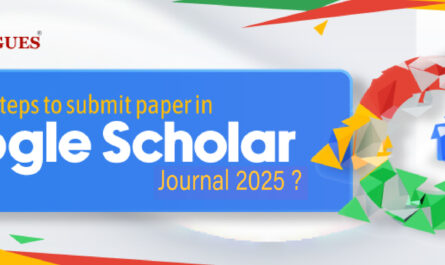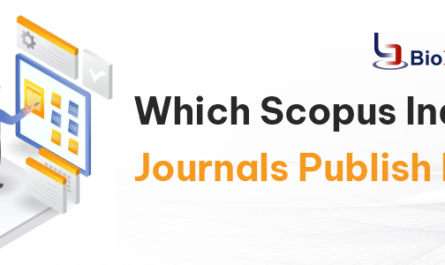Having your research article/paper published in a reputed journal can significantly impact your academic career. Scopus is a renowned abstract and citation database that offers a comprehensive collection of journals, books, and conference proceedings. In this article, we delve into the criteria you need to consider when evaluating a Scopus indexed journals list in your field for your research paper publication. By understanding these criteria, you will be better equipped to find a suitable journal for your work.
- Criterion #1
Scope & Relevance
- First and foremost, ensure the journal you’re considering is relevant to your research area.
- International Scopus indexed journals cater to various fields, and it’s essential to find one that aligns with your research interests.
- Examine the journal’s scope, aims, and objectives to ascertain its compatibility with your work.
- It’s also a good idea to go through recently published articles to gauge the journal’s focus and identify any emerging trends.
- Criterion #2
Journal Impact Factor (JIF)
- The Journal Impact Factor (JIF) is a measure of a journal’s influence based on the average number of citations received by its published articles.
- Although it’s not the only metric, the JIF is a widely recognized indicator of a journal’s prestige and quality.
- A higher JIF usually signifies a more reputable journal.
- However, it’s essential to note that JIF may vary across disciplines, so it’s crucial to compare Scopus indexed journals in India within the same field.
- Criterion #3
CiteScore
- CiteScore, calculated by Scopus, is another metric used to evaluate the citation impact of a journal.
- It takes into consideration the precise number of citations received by a journal’s documents within a given time frame, divided by the number of documents published during the same period.
- Like the JIF, a higher CiteScore typically indicates a more influential journal.
- Comparing CiteScore values among journals in your field can help you select a reputable platform for your research paper.
- Criterion #4
Peer Review Process
- A rigorous peer review process is critical in ensuring the quality of published research.
- Understand the journal’s peer review procedure, including the types of review used (single-blind, double-blind, or open) and the expected duration.
- Reputable journals from any Scopus journals list typically have a thorough review process to maintain high-quality standards.
- Peer review is the cornerstone of scholarly communication, ensuring the quality and credibility of published research.
- As an author, it’s essential to understand the peer review process of a journal before choosing it for your research paper publication.
- Continue reading to learn about the significance of considering the exact peer review process of a journal and how it can influence the impact and perception of your work.
- Ensuring The Quality & Rigor Of Your ResearchA robust peer review process is critical in maintaining high standards of research. When your work undergoes thorough scrutiny by experts in your field, it not only helps identify potential flaws but also provides constructive feedback to improve your manuscript. By selecting a journal with a rigorous peer review process, you can ensure that your research is presented in its best possible form, contributing to its credibility and impact.
- Upholding The Journal’s ReputationThe reputation of a journal is often linked to the quality of its peer review process. Publishing your research in a well-regarded journal can boost your academic profile and increase the likelihood of citations.Moreover, a reputable journal will likely have a wide readership, enhancing the visibility of your work.Understanding a journal’s peer review process can give you insights into its standing in the academic community and help you make an informed decision about where to submit your manuscript.
- Navigating Different Types Of Peer ReviewJournals employ various peer review models, such as single-blind, double-blind, and open peer review. In a single-blind review, reviewers know the identity of the authors but remain anonymous themselves. In a double-blind review, both the authors and reviewers are anonymous. Open peer review, on the other hand, discloses the identities of both parties. Each model has its own merits and drawbacks, and understanding these differences can help you choose the most suitable Scopus indexed journal for your research paper’s publication.
- Managing Time & ExpectationsThe duration of the peer review process can vary significantly among journals. Some may complete the process within a few weeks, while others might take several months. Knowing the typical timeframe of a journal’s peer review can help you manage your expectations and plan your research activities accordingly. If your work is time-sensitive, opting for a journal with a faster review process may be crucial.
- Encouraging Transparency & AccountabilitySome journals have adopted transparent peer review practices, such as publishing reviewer reports or making the review history available. These practices promote transparency and accountability, fostering trust in the research community. If these values align with your research ethos, considering the journal’s peer review process becomes even more critical.
- Taking into account the exact peer review process of a journal is vital when deciding where to submit your research paper.
- A thorough understanding of the review process can help you ensure the quality and rigor of your work, uphold the journal’s reputation, navigate different types of peer review, manage time and expectations, and encourage transparency and accountability.
- Ultimately, selecting the right journal with a suitable peer review process can positively impact the perception and success of your research in the academic community.
- Criterion #5
Indexing & Abstracting Services

- A journal’s visibility can have a significant impact on the reach and impact of your research paper.
- Ensure that the journal is indexed in renowned databases like Scopus, Web of Science, and PubMed. Indexing in these databases can enhance your paper’s discoverability and increase the likelihood of citations.
- Criterion #6
Publication Frequency & Timeliness
- The frequency of publication and the time it takes from submission to journal publication can be crucial, especially if your research is time-sensitive.
- Opt for a journal with a suitable publication schedule and a track record of timely publication.
- In the highly competitive world of academia, the timely publication of research papers is crucial for researchers seeking to establish themselves in their respective fields.
- Choosing from indexed journals with a seamless and fast-paced publication process can have a significant impact on your research career.
- Detailed below are all the reasons why it is essential to opt for a journal that offers a swift and efficient publication process for your research paper.
- Staying Ahead In A Competitive EnvironmentIn today’s fast-paced research landscape, keeping up with the latest findings and breakthroughs is essential. Publishing your work in a journal with a quick and efficient process ensures that your research reaches your target audience in a timely manner. This can help you stay ahead of your peers and contribute to the ongoing academic discourse in your field.
- Boosting Your Research’s ImpactThe faster your research is published, the sooner it becomes accessible to fellow researchers, leading to potential collaborations and citations. A swift publication process can enhance your paper’s visibility and contribute to your research’s overall impact. This, in turn, can improve your academic reputation and help you secure grants, fellowships, or other opportunities.
- Enhance Research RelevanceSome research topics are time-sensitive, with findings that are most valuable when shared promptly. Publishing in a journal with a fast-paced process ensures that your work remains relevant and its implications are recognized and acted upon in a timely fashion. This is particularly important in fields like medicine, public health, or technology, where research findings can have immediate real-world applications.
- Minimize Delays & UncertaintiesA prolonged publication process can introduce uncertainty and delays in your research career progression. By choosing a journal with a swift and seamless process, you can minimize these uncertainties and focus on your next research project or academic endeavor with greater confidence.
- Foster Motivation & ProductivityKnowing that your work will be published in a timely manner can be a significant motivational factor, encouraging you to maintain high levels of productivity. A fast-paced publication process can create a sense of momentum in your research career, propelling you to generate new ideas and undertake new projects.
- Facilitate CollaborationIn many research areas, collaboration is the key to success. A swift publication process allows your findings to be disseminated quickly, providing opportunities for fellow researchers to build upon your work. As a result, this can lead to new collaborations and interdisciplinary partnerships that can further your research career.
- A seamless and fast-paced publication process offers numerous benefits for researchers looking to make an impact in their field.
- By prioritizing Scopus indexed multidisciplinary journals in India with efficient publication procedures, you can stay ahead in a competitive environment, enhance your research’s impact and relevance, minimize delays and uncertainties, foster motivation and productivity, and facilitate collaboration.
- Ultimately, the timely publication of your research paper can contribute to your academic success and pave the way for a thriving research career.
- Criterion #7
Publication Charges
- Consider the journal’s publication charges, including submission fees, article processing charges (APCs), and page charges.
- While some journals offer free publication, others may require payment.
- Ensure you’re aware of any fees involved and have the necessary funds to cover them.
- Criterion #8
Open Access Policy
- Open Access (OA) journals provide unrestricted access to their content, promoting visibility and knowledge sharing.
- Consider the journal’s OA policy and its implications for your research paper.
- Publishing in an OA journal can lead to increased readership and citations, but it may also involve additional publication costs.
Evaluating Scopus journals to find the right platform for your research paper involves considering various factors. By carefully assessing the scope and relevance, impact metrics, peer review process, indexing services, publication frequency, charges, and open access policy, you can make an informed decision on the best journal for your work. This thorough approach will ensure that you manage to choose the best possible Scopus journal for the publication of your research work.




